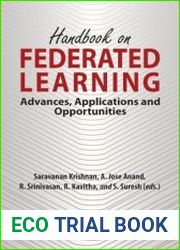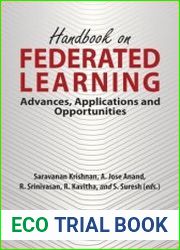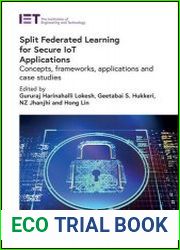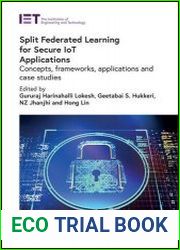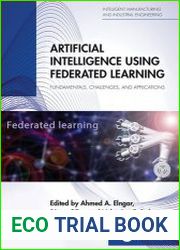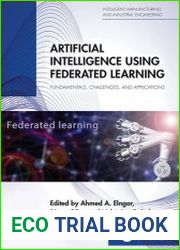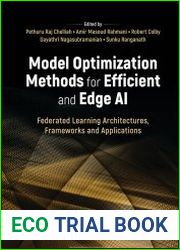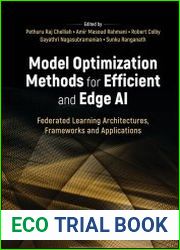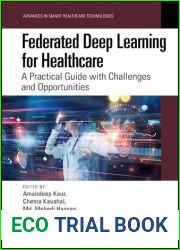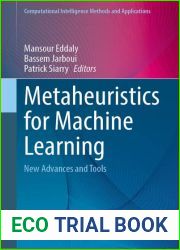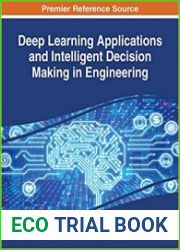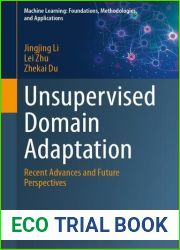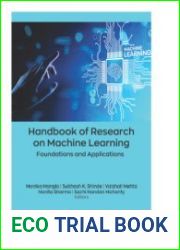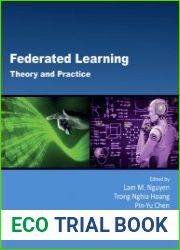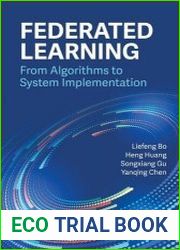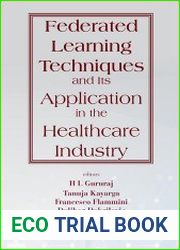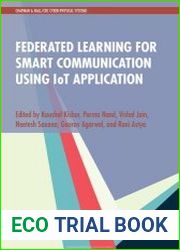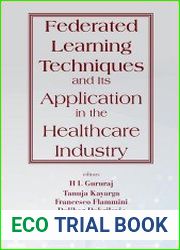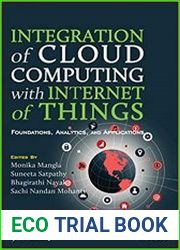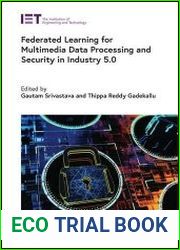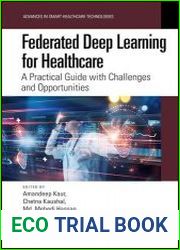
BOOKS - Handbook on Federated Learning Advances, Applications and Opportunities

Handbook on Federated Learning Advances, Applications and Opportunities
Author: Saravanan Krishnan, A. Jose Anand, R. Srinivasan, R. Kavitha, S. Suresh
Year: 2024
Pages: 363
Format: PDF | EPUB
File size: 28.4 MB
Language: ENG

Year: 2024
Pages: 363
Format: PDF | EPUB
File size: 28.4 MB
Language: ENG

The Handbook on Federated Learning Advances Applications and Opportunities is a comprehensive guide to the latest advancements in federated learning, a rapidly growing field of research that has gained significant attention in recent years due to its potential to address privacy and data security concerns while still achieving high levels of model accuracy. The book covers a wide range of topics, from the fundamental concepts of federated learning to its applications in various domains such as healthcare, finance, and smart cities. It also explores the challenges and limitations of this technology and provides insights into future research directions. The book begins by introducing the concept of federated learning and its importance in today's data-driven world. It explains how traditional machine learning methods have relied heavily on centralized data storage and processing, which can raise serious privacy and security concerns. Federated learning offers an alternative approach by allowing multiple parties to jointly train models on their local data without sharing the data itself, thereby preserving data privacy and reducing the risk of data breaches. The authors provide a detailed overview of the key components of federated learning, including the decentralized architecture, client-server communication protocols, and the role of the aggregator. They also discuss the different types of federated learning, such as horizontal federated learning, vertical federated learning, and multi-task federated learning. The book then delves into the applications of federated learning in various domains, including healthcare, finance, and smart cities. In healthcare, federated learning has been used to develop predictive models for patient outcomes, identify high-risk patients, and optimize treatment plans. In finance, it has been applied to fraud detection, credit risk assessment, and portfolio optimization.
''







